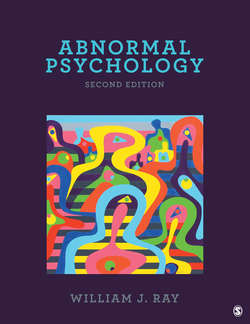Читать книгу Abnormal Psychology - William J. Ray - Страница 130
На сайте Литреса книга снята с продажи.
Research Hypothesis
ОглавлениеAfter ruling out the null hypothesis and the confound hypothesis, we can assume that the results reflect the action of the IV. Our next step is to consider what this means. We begin to generalize from our set of data and consider both the implications of our results for other groups of people and the theoretical implications of the data. Sometimes we are led to new ideas, which in turn generate new research hypotheses, which can be investigated with additional experiments.
Figure 3.8 Four Major Steps in the Experimentation Process
Figure 3.8 presents a simplified outline of this procedure, which reflects the evolutionary nature of science. The steps include (1) the development of the hypothesis, (2) the translation of this hypothesis into a research design, (3) the running of the experiment, and (4) the interpretation of the results. You will notice that there is also an arrow from Step 4 back to Step 1. Researchers take the results and interpretations of their studies and create new research studies that refine the previous hypotheses.
In psychological research, we have some powerful techniques to help us achieve this goal. Unlike the detective who must always reconstruct events after the fact, the researcher has the advantage of being able to create a new situation in which to test ideas. This is comparable to a homicide detective’s being able to bring a dead man back to life and place him in the presence of each suspect until the murder is reenacted. Such a reenactment might lack suspense and not make it in prime time, but it would increase the certainty of knowing who committed the murder.
Increased certainty is a large part of the experimental process. Scientists increase certainty by creating an artificial situation—the experiment—in which important factors can be controlled and manipulated. Through control and manipulation, participant variables may be examined in detail, and the influence of one variable on another may be determined with certainty. The Cultural LENS below describes randomized controlled trials (RCTs), examining treatments for mental illness in low- and middle-income countries.
Cultural Lens
